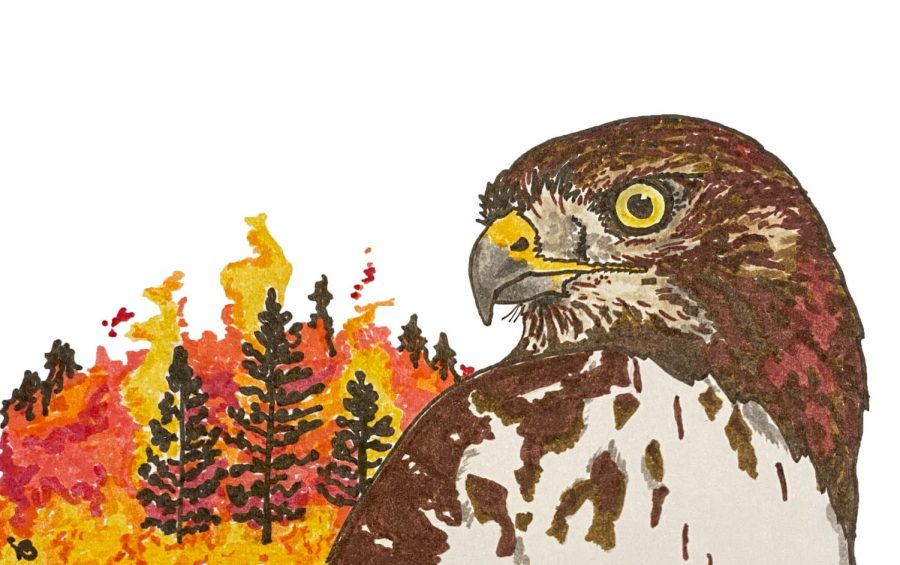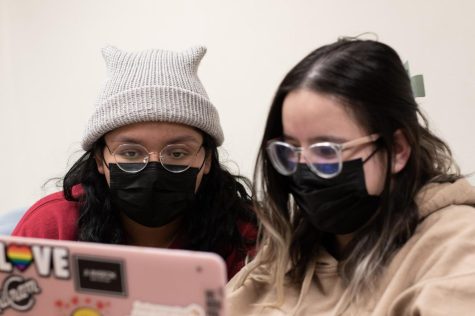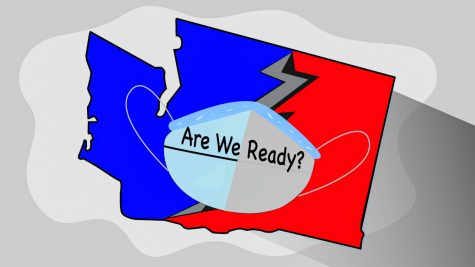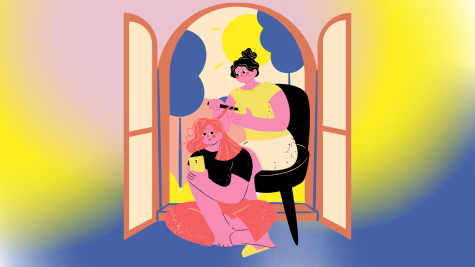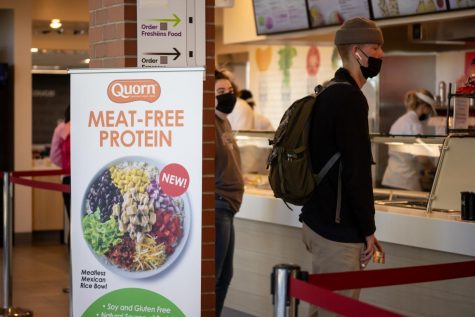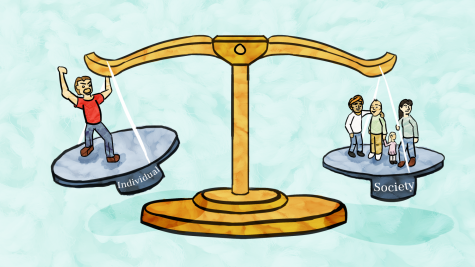OPINION: Do not forget about nature when air quality suffers
Humans can go inside to escape smoke; wildlife cannot
Birds, like the native red-tailed hawk, are especially prone to smoke inhalation.
September 19, 2022
As smoke swept through the Pacific Northwest, it caused unhealthy air conditions in late August and early September. The effects were felt by all members of the Pullman community, humans and animals alike.
But unlike us, wildlife cannot put on a mask, go inside or use an air purifier to escape the worst of the fumes during fire season.
Stuck inside during the worst of the smoke, I worked on grinding homework and keeping an ear out for birds. Although I could not go outside to look for them due to the smoke, there are a few that prefer the trees near my room for perching.
The resident red-tailed hawk was sounding a bit shrill, but that is normal, so I chalked it up to the bird being aggravated or alarmed.
It is when I woke up the next morning to the cawing of crows that I realized their plight. Their calls, usually loud and clear (which nobody but me looks forward to at 5:30 a.m.), were dry and hoarse.
“Birds have a lot more efficient lungs, so they’re much more prone to smoke inhalation than humans’ lungs,” said Bailey Greene, junior wildlife ecology and conservation sciences major.
This was only halfway through the smoke wave. How do animals cope with conditions that make me dash to the safe retreat of the nearest air-conditioned haven?
Some creatures, like burrowing rodents and weasels, hide when they smell smoke, according to National Geographic. Others, like birds, deer and other large mammals, flee.
With small fires, these strategies are often effective at keeping wildlife out of unhealthy smoke levels.
But larger fires have been sweeping the western side of the country in recent years. Their toxic fumes can inundate a region, trapping animals in dense haze for weeks on end.
“In California, the wildfires are really, really bad, so it was just normal smoke for us,” said sophomore nursing major Cayla Bulaong.
Just like humans, wildlife suffer from the effects of smoke inhalation. High concentrations of smoke cause eye and lung irritation, leading to coughing, wheezing and exhaustion.
Jordyn Eleazar, senior athletic training major, said she saw the smoke affecting students as well.
“I’ve noticed that for some people, the smoke is causing allergies, like skin irritation,” Eleazar said. “If it’s having an effect on us, obviously I feel like it’s going to affect the wildlife.”
But, like many students, Eleazar admitted that she was not familiar with the effects that wildfire smoke has on wildlife. The short-term effects of smoke inhalation on wildlife are very similar to those in humans.
But short-term effects are just the beginning. Severe smoke exposure can have long-term health impacts.
Such long-term impacts have been studied more thoroughly in livestock. The American Veterinary Medical Association recommends limiting exercise of livestock during smoke exposure and giving livestock four to six weeks to recover.
As is the case with illnesses like the flu, young and old animals are most affected by smoke, so be sure to take extra precautions for these high-risk groups if you have puppies, kittens or older pets.
Smoke inhalation weakens the immune system, making animals more susceptible to respiratory infections like pneumonia. It can permanently lower lung capacity – the volume of air able to be drawn into the lungs – impacting breathing. Toxic particles carried in the smoke, like lead and other heavy metals, also increase the risk of lung cancer.
Like birds, cetaceans are also very susceptible to health impacts from the smoke. Their lungs are much more efficient than those of humans, according to National Geographic. Unlike us, they do not have sinuses or mucus to filter out harmful particles.
It can even alter entire ecosystems. High smoke levels produce acid rain, damaging vegetation that animals depend on for grazing. If herbivores struggle to find food, so will carnivores.
Although little research has been conducted on the effects that wildlife suffers during periods of unhealthy smoke levels, the field is beginning to grow. More research is looking into how a variety of species, from livestock to primates, are affected by smoke.
As we learn more about how wildlife is affected, perhaps there will be ways we can help. In the meantime, limit your and your pet’s time outside if smoke levels are deemed unhealthy for sensitive groups. Stay indoors when smoke levels are in the unhealthy range.

